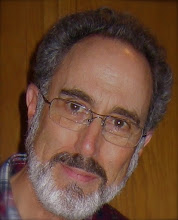
I set out to write a spy novel, on the premise that one should write what one knows. I began with a time of great promise and even greater threat – the fall of the Soviet Union and Russia’s anarchic rebirth. The USSR’s vast nuclear arsenal was vulnerable in 1994 – the period in which the story takes place -- neglected by a demoralized military and coveted by a burgeoning band of Islamic extremists bent on destroying the West. With this as a backdrop, I developed a plot involving a missing Russian plutonium pit (the core component of a nuclear weapon), an obscure Iranian terrorist group, and an American CIA agent sent to discover the whereabouts of the pit and the intentions of its prospective new owners. I began writing, and then I discovered Daniel Conte, the protagonist in this twisted tale of intrigue, betrayal, and regret, and Conte took over the story.
I found Conte in the midst of a failed marriage, dealing with a nuclear-armed failed state, working with a Russian agent he couldn’t really trust, having an affair with a British agent he couldn’t afford to compromise, and under suspicion of being a traitor to the country for which he’d sacrificed so much – talk about a mid-life crisis.

The CIA’s Nuclear Proliferation Center believes that the missing Russian plutonium pit is either headed to Iran, or to terrorists sponsored by Iran. In either case, they are prepared to do whatever is necessary to recover the pit, even if it means working with the Russian intelligence service. That’s where Conte comes in. He has a long-standing professional relationship with a Russian agent named Anatoly Balakirev who, the CIA believes, is privy to sensitive information regarding the location of the pit. The Russian intelligence service has managed to place Balakirev in a key position with the International Atomic Energy Agency, the IAEA, in Vienna, and that’s where Conte is headed when we first meet him.

Conte’s contact in Vienna is a British MI6 agent, Kaitlyn Clarke, who is working under cover as Balakirev’s secretary at the IAEA -- a case of spies spying on spies. Kaitlyn is beautiful, brilliant, and single. Conte is divorced, despondent, and lonely. One thing leads to another. The conventional wisdom is that it’s bad practice to carry on an affair with a professional colleague. Conte’s not your most conventional operative, but in this case, he’d have been wise to abide by this homily.
Conte gets mugged in Vienna by a couple of thugs who turn out to be working for a Russian engineering firm for whom Balakirev just happens to be turning nuclear tricks. By the time Conte finds this out, he’s in Istanbul, Turkey, following up on a lead concerning a front company that may have the plutonium pit.
While in Istanbul, Conte and Balakirev, working with Turkish intelligence, learn that the plutonium pit has ended up in the hands of Islamic terrorists. The two agents devise a plan to determine the location of the pit and succeed in arranging a joint Russian-US recovery effort. It’s an unlikely collaboration and things go wrong from the start.

When Conte and Balakirev find themselves fighting the terrorists in Iran’s desolate Baluchestan region, it’s anyone’s guess who’ll be shooting at whom. Conte is seriously wounded during the action and is air evac’d back to the States, while Balakirev returns the plutonium pit to Russia. There are unpleasant surprises awaiting both men on their return home, and revelations going back to the 1979 Iranian Revolution will spell the end of one of the agents’ careers.
From Vienna, to Istanbul, to Tehran, Conte’s mission uncovers repressed memories of past betrayals and leads to new ones that challenge the very core of his beliefs in his mission, his country, and in himself.









